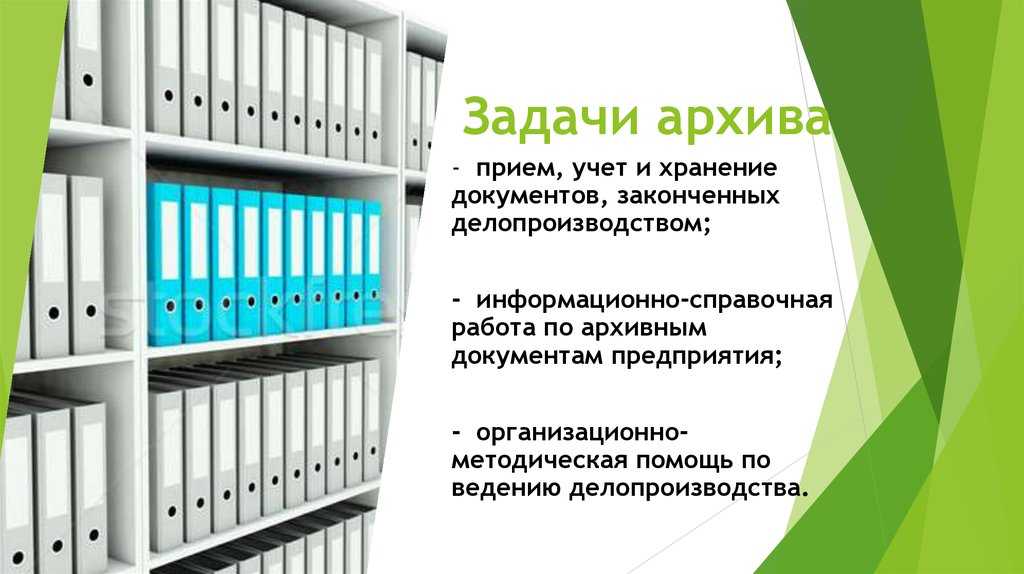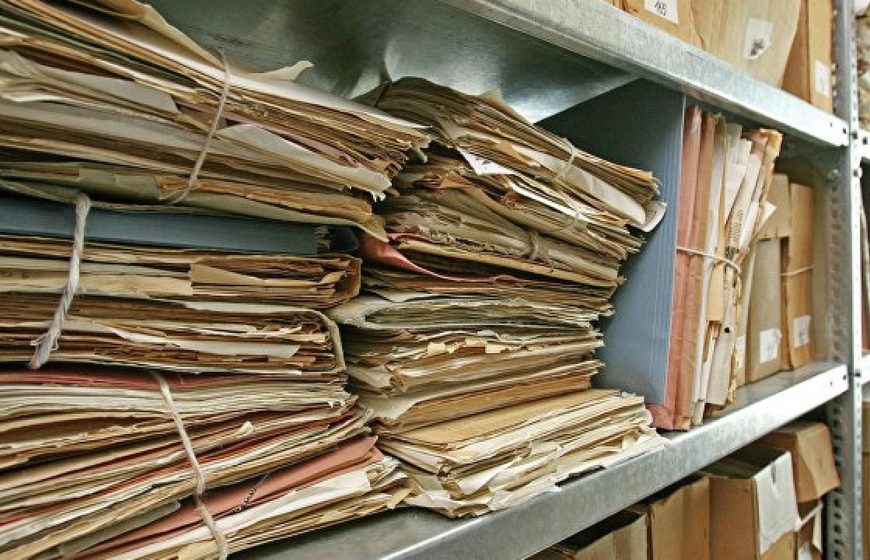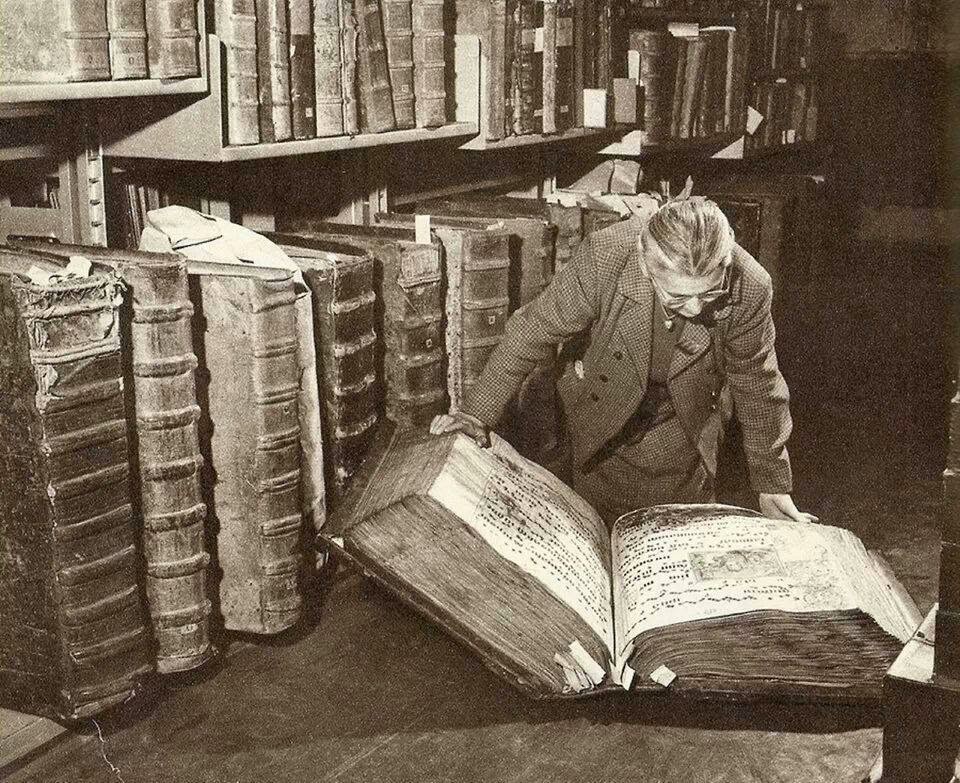Что такое архивный шифр и как документы хранятся в архивах?
Возле заголовков документов на нашем сайте вы видите непонятные обозначения, вроде такого:
ГА РФ. Ф. 111. Оп. 5. Д. 669. Л. 342, 347–347 об., 374.
Что это значит и зачем мы это пишем?
Это называется «архивный шифр» и служит точным адресом документа.
Расшифровываются буквенные сокращения так:
Государственный архив Российской Федерации. Фонд 111. Опись 5. Дело 669. Листы 342, 347–347 оборот, 374.
Все равно непонятно? Давайте разбираться.
Представьте себе огромное здание, в котором десятки больших хранилищ заставлены стеллажами с документами. Речь идет зачастую о сотнях тысяч дел и миллионах листов. Их, конечно же, нужно сохранить в целости. Но в них еще нужно как-то ориентироваться, знать, где что лежит, уметь быстро найти нужное. Как придумать такую систему классификации документов, чтобы их было легко найти, чтобы вновь поступающие части архивов (например, дела какого-то учреждения за следующие несколько лет) легко соединялись с предыдущими, чтобы связанные друг с другом документы не оказались разрозненными? Этим вопросом много занимались теоретики архивоведения в конце XIX – начале XX в. И пришли к убеждению, что лучший способ – это хранить архивы в соответствии с так называемым «принципом единства происхождения». На самом деле, это очень простая и логичная система. Архивы сохраняются так, как они сформировались – как архивы учреждений или частные, фамильные (человек или учреждение, к которым восходит данный архив, называется «фондообразователь»).
И пришли к убеждению, что лучший способ – это хранить архивы в соответствии с так называемым «принципом единства происхождения». На самом деле, это очень простая и логичная система. Архивы сохраняются так, как они сформировались – как архивы учреждений или частные, фамильные (человек или учреждение, к которым восходит данный архив, называется «фондообразователь»).
Вы, наверное, уже заметили, пока это читали, что слово «архив» имеет два значения: 1) архив как учреждение, где хранятся архивы, 2) архив как комплекс документов одного фондообразователя: архив писателя, поэта, ученого, архив дворянской семьи, архив завода, министерства, правительственного учреждения. Чтобы отличать первое от второго, архивисты пользуются термином «фонд». Фонд – это и есть архив во втором смысле, архив человека или учреждения, хранящийся в государственном архиве. Каждому фонду присваивается свой номер.
Фонд может быть маленьким, всего из нескольких папок («дел»), а может быть и очень большим, из тысяч и десятков тысяч дел. Дело – это документы, хранящиеся в особой папке, или конверте, и имеющие общий заголовок и номер по описи фонда. Листы в каждом деле обязательно пронумерованы, причем, в отличие от книжных страниц, в архивах принято ставить номер именно на листе. В книжке номер есть на каждой страничке, и на лицевой стороне, и на оборотной. Получается, что на листе книги (физическом листе бумаги) стоит два номера, по одному на каждую страницу. В архивах так не делают, номер ставят только на лицевой стороне – каждому физическому листу бумаги один номер. А если при цитировании нужно сослаться на текст, расположенный на обороте листа, то так и пишут, как в нашем примере: Лист 347 оборот (Л. 347 об.)
Дело – это документы, хранящиеся в особой папке, или конверте, и имеющие общий заголовок и номер по описи фонда. Листы в каждом деле обязательно пронумерованы, причем, в отличие от книжных страниц, в архивах принято ставить номер именно на листе. В книжке номер есть на каждой страничке, и на лицевой стороне, и на оборотной. Получается, что на листе книги (физическом листе бумаги) стоит два номера, по одному на каждую страницу. В архивах так не делают, номер ставят только на лицевой стороне – каждому физическому листу бумаги один номер. А если при цитировании нужно сослаться на текст, расположенный на обороте листа, то так и пишут, как в нашем примере: Лист 347 оборот (Л. 347 об.)
Остается объяснить, что такое «опись». Опись – это перечень дел фонда, по порядку, с номером дела и заголовком. А теперь представьте себе, что существует большое учреждение-фондообразователь, которое каждый год (ну, или раз в несколько лет) сдает в государственный архив новую порцию своих документов. То есть этот фонд постоянно пополняется. Тогда поступают так: на документы, сданные за один раз, составляют опись и дают ей номер, и документы в ней нумеруют по порядку (обычно их располагают группами по годам и структурным частям учреждения: материалы секретариата, отдела кадров, других отделов). Когда придет следующая порция документов, на них составят новую опись, дадут ей следующий номер (например: опись 2), и в ней снова пронумеруют дела по порядку, начиная с 1. При этом обе описи, и все последующие, будут относиться к тому же самому фонду. Вот и получается наш архивный шифр: название архивного учреждения, номер фонда, номер описи, номер дела и номера листов.
Тогда поступают так: на документы, сданные за один раз, составляют опись и дают ей номер, и документы в ней нумеруют по порядку (обычно их располагают группами по годам и структурным частям учреждения: материалы секретариата, отдела кадров, других отделов). Когда придет следующая порция документов, на них составят новую опись, дадут ей следующий номер (например: опись 2), и в ней снова пронумеруют дела по порядку, начиная с 1. При этом обе описи, и все последующие, будут относиться к тому же самому фонду. Вот и получается наш архивный шифр: название архивного учреждения, номер фонда, номер описи, номер дела и номера листов.
ГА РФ. Ф. 111. Оп. 5. Д. 669. Л. 342, 347–347 об., 374.
Журнал «Отечественные архивы» № 5 (2018 г.)
Articles and reports
History and practice of the records and archives management
Bolotina N.V., Ovchinnikova N.A. Archival service of the Vologda province and its leaders in 1918–1929
The pages of the history of formation of archives management in the province are covered with the involvement of sources from the State Archive of the Vologda region and the State Archive of the Russian Federation which were not previously used.
Shokhin L.I. From the history of the description of documents of the Russian State Archive of early acts in the 1960s
Organization of the description of documents and development of finding aids in the archive is covered on the basis of the archival fond of the Chancellery of TsGADA.
Bukreeva O.N. Archives management bodies and legal regulation in the field of records management (1918–2018)
The main stages, problems and tools of regulation of records management by the archives management bodies in our country are distinguished.
Krinitsyna E.K. Archival documents in school museums of the Nizhny Novgorod region: results of monitoring
The results of the survey of 247 museums of state and municipal educational organizations (schools, colleges, technical schools, universities) conducted by the Committee for archives in 2018 are summarized.
In the funds of the Russian archives
Viyunitskaya E. V., Pivovar E.I. Questionnaire of the Prague Committee for commemorating the 175th anniversary of the Moscow University in its fund in the State Archive of the Russian Federation
V., Pivovar E.I. Questionnaire of the Prague Committee for commemorating the 175th anniversary of the Moscow University in its fund in the State Archive of the Russian Federation
The results of the survey of emigrants from Russia (university graduates) and the verification of these data are presented, and a comparative analysis of statistical data is carried out.
Sharonin D.A. Report of the All-Union Thermotechnical Institute to the Fuel Committee of the Council of Labor and Defense (STO) USSR of February 8, 1931 as a source on the “case of the Industrial Party” and the problems of the Soviet thermal power engineering
Some aspects of the origin and content of the report and other documents from the fonds of the Russian State Archive in Samara, covering the problems of Soviet energetics during the first five-year period and the background of the «Industrial Party process», are disclosed.
Ilizarov B. S. Documents of the Russian State Archive of literature and art about film director S.M. Eisenstein as the historian
S. Documents of the Russian State Archive of literature and art about film director S.M. Eisenstein as the historian
The documents from the film director’s personal fond concerning the preparation of the screenplays of the films «Alexander Nevsky» and «Ivan the Terrible» in the 1930s – 1940s are characterized.
Golovnev I.A. Documents of Russian archives and museums on the life and work of film director A.A. Litvinov at the turn of the 1920s – 1930s
Written, photo and film documents about the pioneer of Russian ethnographic cinema, concentrated in the state archives and museums of the Far East are presented.
Archives presentation
Suveizda L.V., Chernykh T.A. Taimyr municipal archive of the Krasnoyarsk territory
The main stages in the history of the town of Dudinka, the Taimyr Dolgano-Nenets municipal district and the municipal state institution «Taimyr Archives» are marked out; the volume, composition and content of its fonds, directions of activities, material, technical and personnel base are described.
Sidorkina O.N. Mednogorsk municipal archive of the Orenburg region
The history of the city of Mednogorsk and its archive, created in 1943, is elucidated; the main directions of its activity and achievements in collecting, preserving and organization of use of valuable documents are covered.
Publications of documents
«Archive is a living repository of people’s history». Memories about the historian and archivist A.V. Golovkin. (To the 100-th anniversary from the birthday) Publication’s author(s): Golovkin N.A.
The memories about the graduate of the Institute of philosophy, literature and history (IFLI) A.V. Golovkin, who dedicated 40 years of his life to the archives of Turkmenistan, written by his son in April-June 2018 and stored in the family archive are published for the first time.
«In the situation we are in, our further stay is impossible». Documents of the Russian State Archive of the Economyon the relocation of Red Army soldiers to the North Caucasus in 1933–1934 Publication’s author(s): Kudyukina M.M.
Documents of the Russian State Archive of the Economyon the relocation of Red Army soldiers to the North Caucasus in 1933–1934 Publication’s author(s): Kudyukina M.M.
Five documents from the fond of the All-Union Resettlement Committee under the Council of People’s Commissars (SNK) of the USSR in the Russian State Archive of the Economy, which reveal the difficulties of the daily life of immigrants and the unpreparedness of local authorities to the conduction of the migration policy of the Center, are published.
Reviews and bibliography
Durnovtsev V.I. Archives and power: the first post-revolutionary decade. Minutes and journals of meetings of the governing archives management bodies in 1918–1928: Coll. of doc.: In 2 vol.
Afiani V.Yu. Kozlov V.P. Documentary memory in archeographic knowledge
Zelov N.S. «Work and hope…» Vasily Safonov: new materials and research
Information and chronicle
From editorial mail
Latypova G. M. Archivists of Tatarstan in China
M. Archivists of Tatarstan in China
The results of the training of the delegation of heads and specialists of the state and municipal institutions of the Republic of Tatarstan in the archives of Sichuan province are covered; proposals on the introduction of their best practices are formulated.
Summary and key words
Главная — Архив IT
ПОЛУЧИТЬ МГНОВЕННУЮ ЦЕНУ
ПОЛУЧИТЬ МГНОВЕННУЮ ЦЕНУ
ПО НОМЕРАМ
18+ лет
Более 18 лет в бизнесе
Более 272
Единицы хранения закрытые
Более 216 миллионов
Отсканированные документы
Более 28 тысяч
Коробки надежно хранятся
Услуги цифровой трансформации
Расширенное сканирование
Предоставление передовых решений для автоматизации захвата и извлечения данных, которые приносят результаты
Консолидация записей
Мы можем сократить ваши расходы на хранение ящиков и обеспечить простой и безопасный доступ к вашим записям в Интернете
Службы документов
Предлагая полный спектр решений для обработки изображений документов, которые помогут вашему бизнесу работать более эффективно
Автоматизация цифровой почты
Передав управление почтовым отделением компании ArchiveIT, вы значительно сократите расходы на обработку почты. Все ваши важные входящие документы — платежные ведомости, счета-фактуры, письма, заказы на покупку, заявления о членстве, заявления о приеме на работу, страховые апелляции и юридические документы — могут быть преобразованы в электронном виде и отправлены вашей команде в удобном цифровом формате.
Все ваши важные входящие документы — платежные ведомости, счета-фактуры, письма, заказы на покупку, заявления о членстве, заявления о приеме на работу, страховые апелляции и юридические документы — могут быть преобразованы в электронном виде и отправлены вашей команде в удобном цифровом формате.
Организации, доверяющие нашей работе
Предыдущий
Следующий
С VFilecabinet вы можете хранить всю свою деловую документацию в одном надежном месте. Мы взяли простоту системы картотеки, избавились от связанных с ней головных болей, добавили передовые технологии и перенесли их в 21 век.
Истории успеха клиентов
«Мы экономим 500 долларов США в месяц, избавляясь от коробочного хранения».
ArchiveIT помог нам избавиться от картотеки и создать процесс сканирования и уничтожения наших документов. Мы экономим 500 долларов в месяц, избавляясь от ящиков для хранения. Наши специалисты по условному депонированию имеют мгновенный онлайн-доступ к нашим файлам, а ArchiveIT управляет соблюдением требований к хранению, поэтому нам не нужно этого делать.
Ashley KimCerritos, CA, Detail Escrow
«Мои данные в безопасности с ArchiveIT».
ArchiveIT отсканировал и уничтожил для нас 60 ящиков, примерно 20+ лет клиентских файлов. Многие файлы были загнуты, заклеены скотчем, скреплены скобами и переплетены, и они аккуратно подготовили и отсканировали их и вовремя загрузили в мой виртуальный картотеку за разумную плату. У меня есть мгновенный доступ ко всем моим документам, они надежно защищены брандмауэром, и я чувствую себя комфортно, потому что мои данные защищены с помощью ArchiveIT. Если вы храните физические записи, я настоятельно рекомендую ArchiveIT как быстрое, безопасное и экономичное решение для размещения их в Интернете и снижения ответственности за утечку записей.
Стивен ГрисволдПрезидент и главный исполнительный директор Griswold & Griswold Insurance Agency, Inc.
«ArchiveIT сэкономил мне сотни долларов на плате за хранение ящиков». . Это было слишком. ArchiveIT забрал мои коробки, отсканировал важные и сохранил остальные по разумной цене. ArchiveIT сэкономил мне сотни долларов на плате за хранение в коробках, и теперь у меня есть полный доступ ко всем документам через их виртуальную картотеку VFileCabinet. Спасибо АрхивИТ!
. Это было слишком. ArchiveIT забрал мои коробки, отсканировал важные и сохранил остальные по разумной цене. ArchiveIT сэкономил мне сотни долларов на плате за хранение в коробках, и теперь у меня есть полный доступ ко всем документам через их виртуальную картотеку VFileCabinet. Спасибо АрхивИТ!
Anothony MolinoLaw Office of Molino & Associates
«Наш счет Iron Mountain продолжал расти…»
Мы использовали Iron Mountain для хранения и уничтожения наших документов. Недавно мы инициировали «обновление технологий», закупили новое оборудование и поняли, что наш счет Iron Mountain продолжает расти, хотя количество хранимых ящиков сокращалось. Мы связались с ArchiveIT, и они помогли нам расторгнуть наш контракт, очистить старые файлы и сократить расходы на уничтожение и хранение. Благодаря ArchiveIT у нас почти нет бумаги. Мы рекомендуем ArchiveIT!
Моник СилигОфис-администратор Acturial Benefits Corp
О нас — Архив IT
О нас
Почему выгодно сотрудничать с ArchiveIT?
Мы помогаем компаниям архивировать их важные документы
В течение последних 18 лет ArchiveIT помогает таким компаниям, как ваша, сканировать, уничтожать и хранить важные документы. Мы помогаем компаниям избавиться от файловых шкафов и закрыть удаленные хранилища документов, экономя компании значительные деньги и вновь получая офисные площади.
Мы помогаем компаниям избавиться от файловых шкафов и закрыть удаленные хранилища документов, экономя компании значительные деньги и вновь получая офисные площади.
Во время пандемии ArchiveIT помогает компаниям предоставлять доступ к документам удаленным сотрудникам через свою безопасную облачную систему виртуального картотеки (VFC). Система VFILECABINET обеспечивает возможность полнотекстового поиска по всем документам, включая рукописные заметки.
Для важных документов, которые должны быть сохранены, ArchiveIT хранит коробки на своем безопасном складе, чтобы облегчить соблюдение законных требований к хранению, и мы заблаговременно предупреждаем наших клиентов, когда запланировано и необходимо уничтожение документов.
У вас есть сохраненные документы?
Мы можем помочь и вам!
Преимущества партнерства с ArchiveIT
Безопасность
Мы серьезно относимся к безопасности ваших данных и предлагаем несколько уровней защиты, например безопасный облачный хостинг с 256-битным шифрованием файлов. Благодаря аппаратному сетевому брандмауэру и избыточным резервным копиям файлов за пределами площадки вы можете быть уверены, что ваши записи защищены.
Благодаря аппаратному сетевому брандмауэру и избыточным резервным копиям файлов за пределами площадки вы можете быть уверены, что ваши записи защищены.
Оказание услуг
Являясь вашим партнером по цифровому переходу, мы предоставляем широкий спектр услуг по обработке документов для повышения производительности. От индивидуальных решений для захвата и электронного хранения файлов до стратегий выхода из коробки, чтобы освободить вас от платы за хранение, у нас есть подтвержденный послужной список успеха и обслуживания клиентов
Стоимость
Четкие, лаконичные цены и отсутствие скрытых платежей делают нашу ценность не только доступной по цене. Наша команда предлагает четкий путь к снижению затрат на хранение и предотвращению эксплуатации ящиков. Представьте себе преимущества мгновенного доступа к своим записям и освобождения ценного офисного пространства
Как это работает
ArchiveIT помогает представителям каждого сектора бизнеса с их индивидуальными требованиями к хранению и хранению документов, переводя их из того места, где они сейчас находятся, туда, где они хотят быть.
Независимо от того, является ли цель полностью безбумажным офисом, последовательной стратегией выхода из коробчатого хранилища или услугой электронных изображений на день вперед, ArchiveIT может стать вашим временным партнером, чего не хватает сегодняшним многочисленным вариантам управления документами.
Позвольте нам оценить ваши потребности и помочь вам создать более эффективную и организованную бизнес-среду. Наш сервис не похож ни на какой другой.
Наш проверенный процесс
Соберите и подготовьте документы
Мы забираем ваши коробки и подготавливаем их к сканированию. Все ящики проиндексированы, и когда это необходимо по закону, безопасно храним их на нашем складе. Мы также можем удалить и переработать ваши картотеки. Просто спросите!
Сканирование и хранение
Мы сканируем все ваши документы и загружаем их в вашу виртуальную картотеку. Мы можем сканировать двусторонние, черно-белые, цветные, переплетенные, сложенные — мы делаем все это.
Ваш виртуальный картотека
Отсканированные документы загружаются в ваш безопасный онлайн-виртуальный картотеку (VFC). Вы можете выполнять полнотекстовый поиск; он даже распознает рукописные заметки. Заприте ящики и выдайте ключи. Это ваш картотечный шкаф, не занимающий места на полу!
Измельчение и переработка
Отсканированные файлы хранятся на месте в течение 60 дней, после чего документы подлежат безопасному уничтожению и переработке. Мы также предупреждаем вас, когда запланировано уничтожение определенных файлов.
Гай Пакетт и Лили
Свяжитесь с Гаем напрямую:
Моб.: 310-704-6176
Офис: 310-618-0550
Эл. и он любит это!
Первоначально занимаясь продажей копировальных аппаратов, Гай понял, что целью является «безбумажный», и начал сканировать и уничтожать документы для индустрии условного депонирования. По мере того, как Escrow постоянно движется к цифровым технологиям, Гай превратил ArchiveIT в лидера Южной Калифорнии по предоставлению универсальных архивных услуг.
